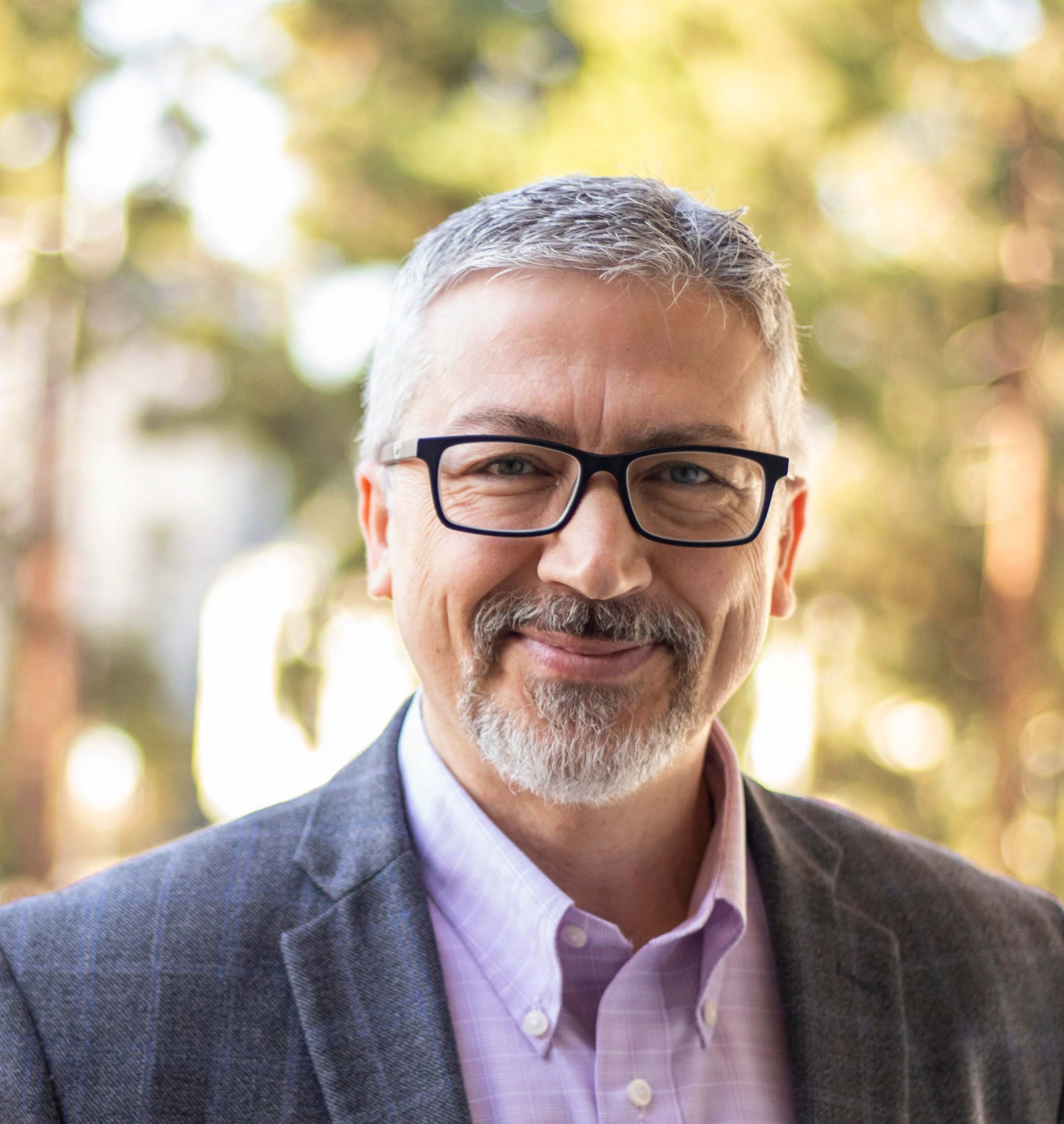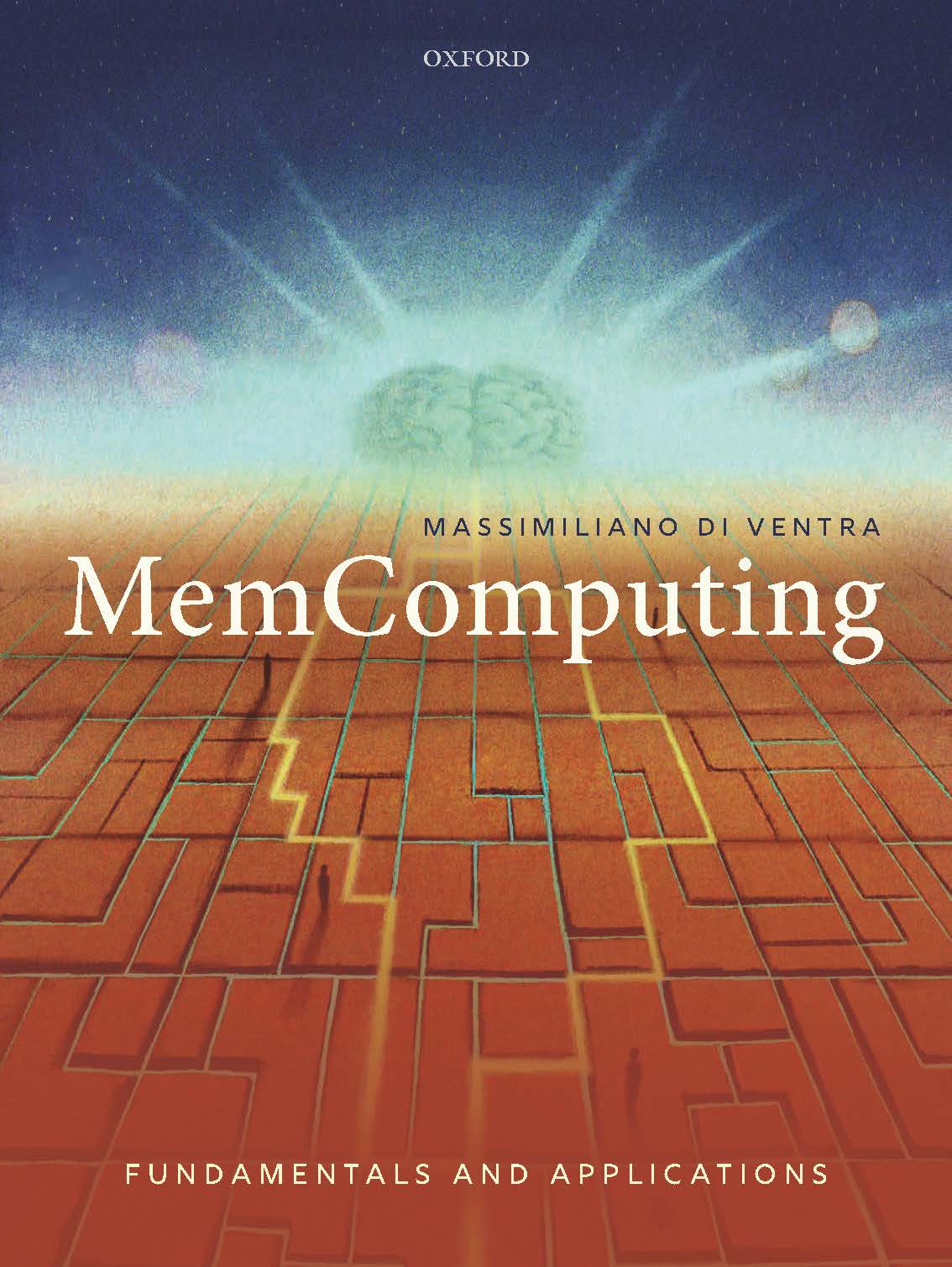Massimiliano Di Ventra Named an IEEE Fellow
February 4, 2022 | By Michelle Franklin
 Massimiliano Di Ventra. Credit: Michelle Fredricks, Division of Physical Sciences, UC San Diego.
Massimiliano Di Ventra. Credit: Michelle Fredricks, Division of Physical Sciences, UC San Diego.
UC San Diego Professor of Physics Massimiliano Di Ventra has been named a 2022 fellow of the Institute of Electrical and Electronics Engineers (IEEE). Di Ventra was the only UC San Diego faculty member named an IEEE fellow in 2022—doubly unique in that Di Ventra is a theoretical physicist, not an engineer. He was inducted for his “contributions to quantum transport in nanoscale systems and in-memory computing.”
Di Ventra has worked extensively on the theory of electronic transport and ionic heating in nanoscale systems, as well as other phenomena that may not be apparent or important to larger macro- and meso-scopic systems.
Quantum transport and nanoscale systems provide a pathway to more desirable electrical, optical and thermal features due to their extremely small size. This can have profound implications on the future of electronics, including semiconductor fabrication and quantum computing.
The future of electronic devices is one of the ways Di Ventra’s work supports IEEE’s vision of “advancing technology for humanity.” Another is through his more recent work around “in-memory computing” or memcomputing—a type of computing that promises to solve complex problems even quantum computing cannot.
Classical computers house the central processing unit (CPU) and memory unit in separate locations. As problems increase in size, processing time slows considerably. Quantum computing tries to sidestep this issue by using the collective properties of quantum states; however, this form of computing is still in development and quantum computers today cannot outperform classically structured supercomputers.
Enter memcomputing. Unlike quantum computing, memcomputing does not rely on quantum units so it can be achieved with currently available hardware and technology.
“Memcomputing employs memory to both process and store information on the same physical location. It is something like how a human brain operates,” said Di Ventra. In fact, he has been awarded a Lattimer Research Fellowship to discover what memcomputing can teach us about how the human brain works.
Based on the development of memcomputing technology, Di Ventra co-founded MemComputing in 2016. The company currently offers memcomputing software as a service (SaaS) hosted in the cloud or a software development kit that clients can integrate with their own systems.
Di Ventra said he felt very honored to be named a fellow, especially given his focus on physics research. “The boundaries between fields are slowly disappearing—chemistry, engineering, computer science, physics—many of us are working on cross-disciplinary problems,” he stated. “When you work with researchers in other disciplines, you have to learn a new language, expand your knowledge. Ultimately, this helps a lot with your own research.”
Di Ventra has written two books on nanoscale systems—Introduction to Nanoscale Science and Technology and Electrical Transport in Nanoscale Systems—and one on the practice of science research titled The Scientific Method: Reflections from a Practitioner. His latest book, MemComputing: Fundamentals and Applications will be released later this month from Oxford University Press.

